‘Clear’: Jacinta’s big call on Voice funds
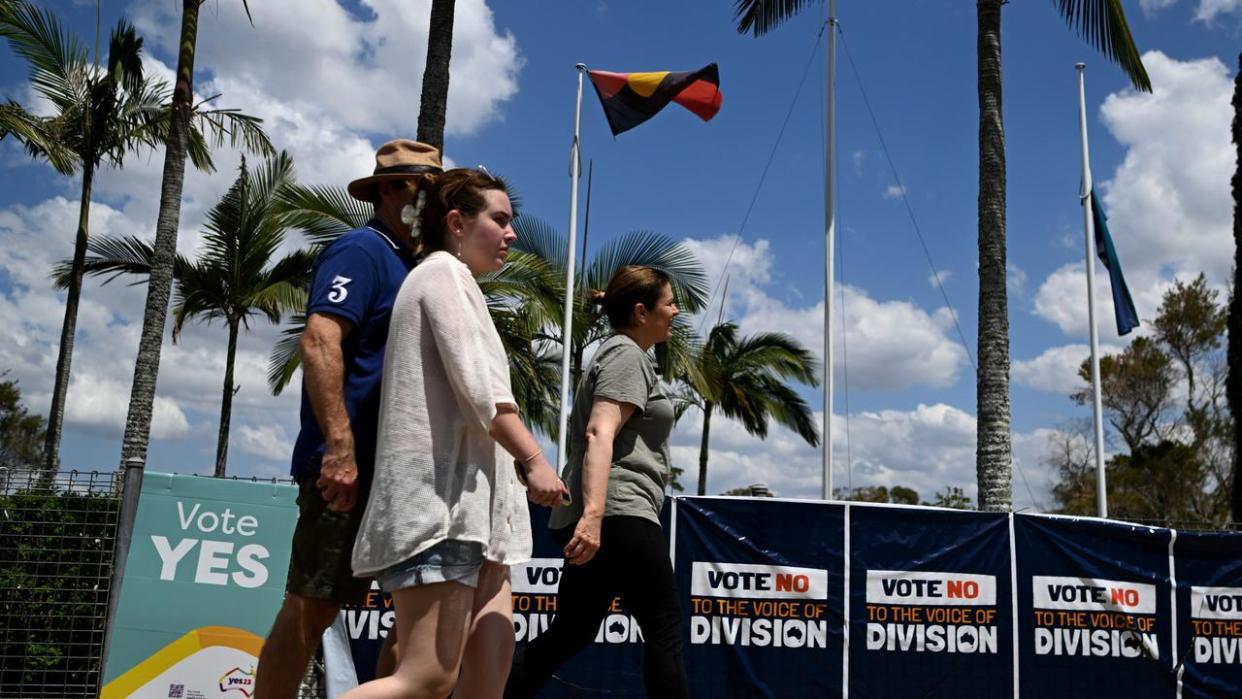
Official figures revealing the Yes campaign spent more than double that of the No campaign during last year’s failed Voice to Parliament referendum should send a “clear message” to large corporations, Jacinta Nampijinpa Price said.
The Australian Electoral Commission on Tuesday published the financial disclosures, six months after the proposal to insert an Indigenous voice into the constitution was defeated 60-40.
Under the law, any disclosures over $15,200 must be declared, revealing the Yes campaign spent nearly $55m on the referendum.
Australians for Indigenous Constitutional Recognition, which ran the Yes23 campaign, received $47.5m in donations and spent $43.8m, while the University of NSW, which housed the Uluru Statement from the Heart, received $11.12m and spent $10.3m.
Meanwhile, No campaign groups spent more than $25m.
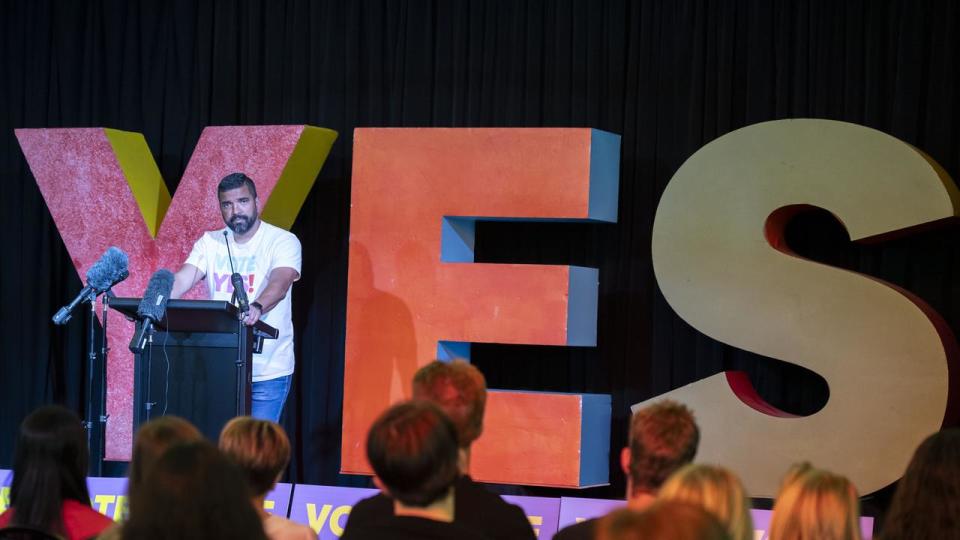
Australians for Unity, also known as Fair Australia, spent $11.1m. Advance Australia spent $10.3m, despite only receiving $1.3m in donations during the reporting period.
The Coalition’s spokeswoman for Indigenous Australians, who was the face of Advance Australia’s campaign, said the report revealed “what we knew all along”.
“The Voice was the priority of the elites, activists and corporations. The No campaign was supported by everyday mums and dads,” she said.
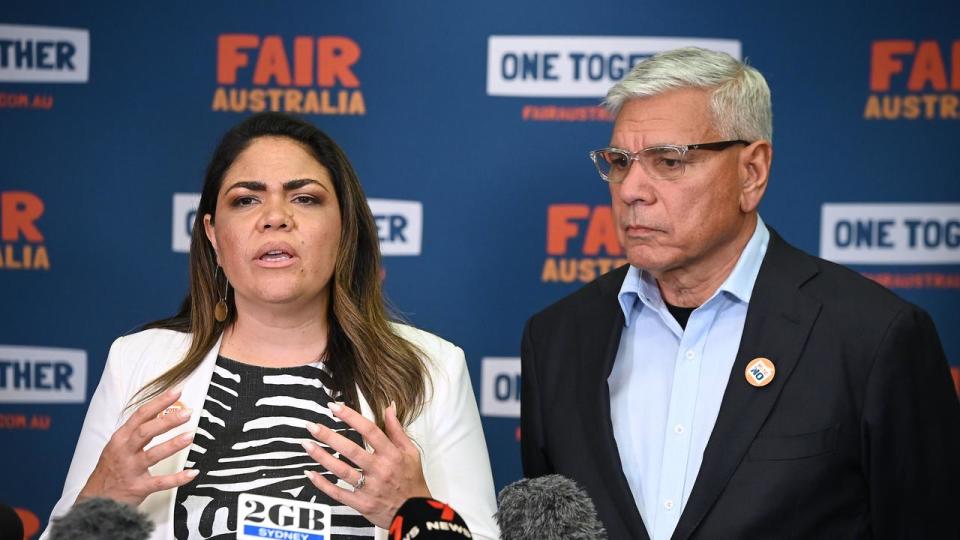
“Despite the Yes campaign outspending the No campaign more than two to one, Australians recognised the Voice for what it was: Albanese’s voice of division. The voice was going to entrench division in our constitution and not practically help the most marginalised in our community.
“Today’s report should send a clear message particularly to those larger corporations; they should focus on providing for their customers, not telling them what to think.”
The biggest individual donor was the philanthropic Paul Ramsay Foundation, which donated $7.01m to Australians for Indigenous Constitutional Recognition.
Givia Pty Ltd ATF Yajilarra Trust donated $4.45m to UNSW.
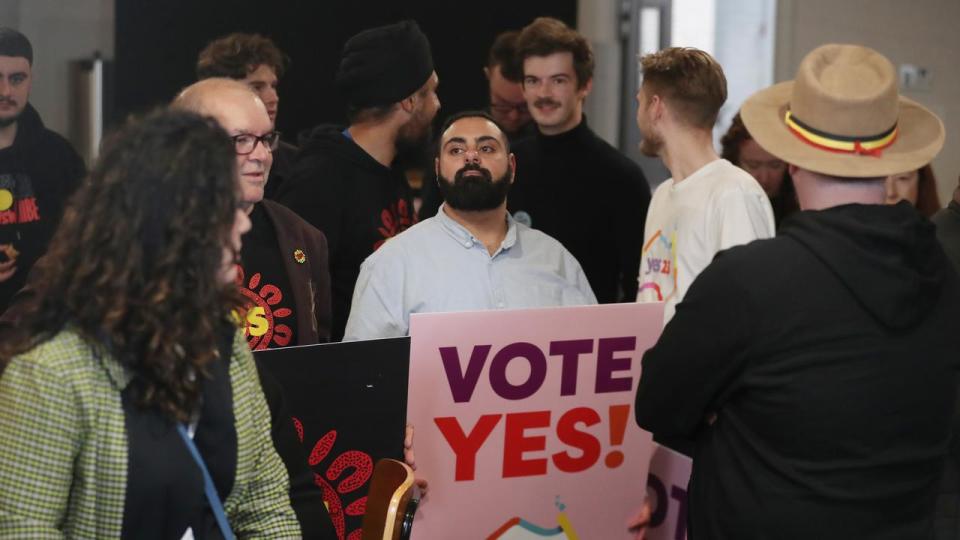
ANZ ($2.45m), Woodside Energy ($2.18m), Commonwealth Bank ($2.05m) and Westpac ($2.048m) all donated to entities associated with the Yes campaign.
Wesfarmers, BHP and Rio Tinto all donated about $2m to Yes campaign groups and Woolworths gave $1.56m.
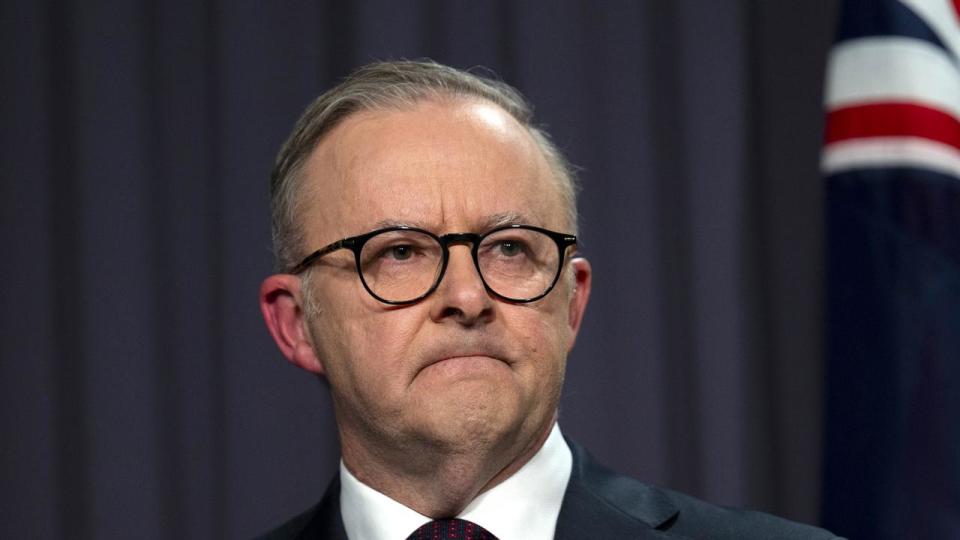
No advocate Clive Palmer’s Mineralogy spent $1.93m during the campaign.
A number of unions pitched in to the Yes campaign, with the federal branch of the Australian Education Union spending more than $1m, and the Australian Council of Trade Union spending $883,685.
The Liberal Party of Australia received $1.9m and spent $1.91 during the campaign, the Nationals spent $572,947, while the Australian Labor Party spent $684,936.
Former Liberal prime minister Malcolm Turnbull donated $50,000 to the Yes campaign.
Waverley Council, which came out in support of the referendum, spent $28,417 but declared no donations.
“Teal” independents Monique Ryan, Allegra Spender, Kylea Tink and Zali Steggall spent $67,505, $63,464, $15,689 and $14,600 respectively, while Kooyong Independent Ltd spent $62,947.
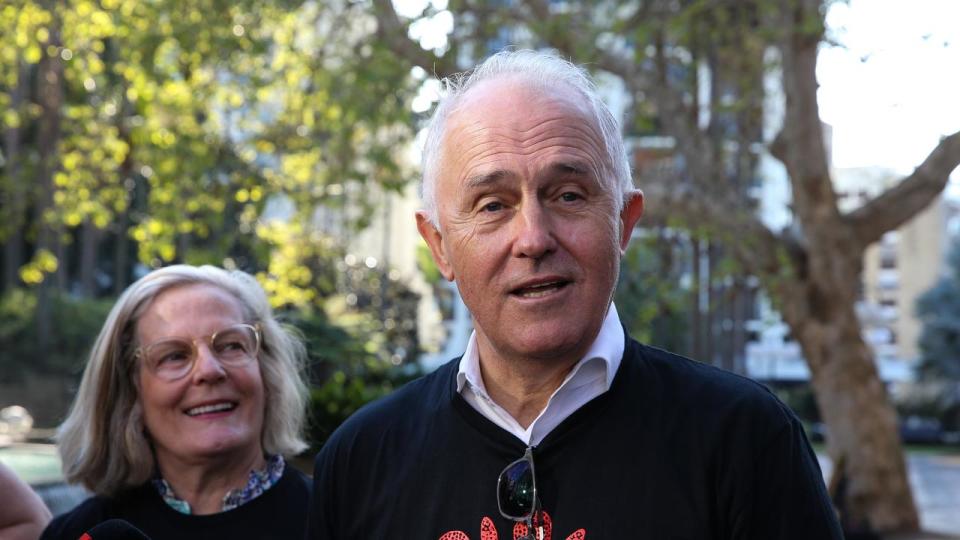
Who is the biggest Yes donor?
The Paul Ramsay foundation was founded by Paul Ramsay, a businessman and philanthropist who bequeathed $3bn to the foundation in 2014.
In the 10 years since, the foundation has evolved under the purpose of “helping end cycles of disadvantage in Australia by enabling equitable opportunity for people and communities to thrive”.
The foundation has its own First Nations Advisory Council, which supports work with partners in “ways that are thoughtful, community-led and evidence-based to achieve sustainable and powerful impact”.
In the wake of the referendum’s result, the foundation put out a statement saying it was “disappointed” the “generous invitation” from the Uluru Statement from the Heart was not accepted.
Chief executive Kristy Muir said at the time “important social change takes time and often suffers setbacks”.
“We are proud of our support for Yes23, and thank everyone who gave their time, energy and support to the campaign,” she said at the time.


